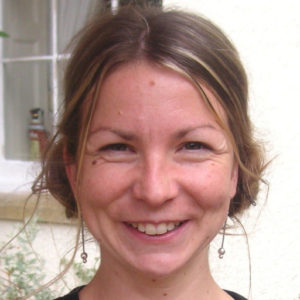Demand for French-language education is on the rise as parents hope to give their children an edge in their lives and careers, but Canada is struggling to keep up with the demand for French language teachers, reaching an estimated shortfall of 10,000 teachers across the country.
Camerise, a new knowledge hub emerging from York University’s bilingual Glendon Campus, aims to help Canada attract and retain French as a Second Language (FSL) teachers by creating a digital meeting place where students, educators and leaders in teaching and learning can come together to find and share resources and form an engaged community of practice.

“There was a call two years ago by Heritage Canada and the ministries of education asking for projects to try to address the shortage that’s really becoming a crisis – there are problems with recruitment and problems with retention,” says Prof. Muriel Péguret, one of Camerise’s three co-leads and an associate professor in Glendon’s French Studies Department and Faculty of Education.
“We felt we could provide a platform where everyone can meet and connect and collaborate and find what they’re looking for in a one-stop shop, so that’s what we are aiming to do.”
The hub, she explains, was conceived as a diverse and rich place to learn in an environment that fosters inclusivity, equity and diverse ways of knowing. It brings together universities, high schools and others in FSL education in a collaborative approach that looks to ease the burden on schools and school boards to recruit and retain teachers.
After receiving the federal grant for the project that what would become Camerise, Péguret and fellow collaborators – associate Prof. Dominique Scheffel-Dunand and researcher Mirela Cherciov – spent the first year researching how they could collaborate to create positive change.
They conducted an environmental scan of what resources are currently available to support the next generation of French as a Second Language educators, and they assessed what’s still needed.
“If it doesn’t make sense to the community, if it doesn’t make their life easier, they’re not going to come,” Péguret says. “It was worth spending that year defining ourselves, and our place in the ecosystem.”
They named the hub Camerise, a berry known as haskap in English, as a metaphor for what the hub wants to be.
“Camerise is a super food,” Péguret explains. “It grows in clusters, which represents the culture of community for us. It flourishes in northern climates – so Canada. You can eat it raw or put it in deserts, and when you transform it like that it becomes something else. You can see how it represents what we stand for.”
Only in its second year, Camerise has already cemented one student’s desire to pursue a career as a FSL teacher.
Reilly Bradley, 22, a teacher candidate in her final year of concurrent education at Brock University, says an opportunity to do some workshops and professional development with Camerise confirmed she was on the right career path. The hub’s collaborative and problem-solving approach gave her confidence that challenges she may encounter in the field could be overcome.
Now that she’s found her people, it’s a relationship she says will be lasting.
“Being part of Camerise is really going to help me become the FSL teacher I want to be,” says Bradley. “I needed this exposure, collaboration, push to work with people who share my goals, and really dive in.”
Halley Wettlaufer, 18, who is studying to become a French-language teacher at Glendon, is helping to develop an interactive activity through the Camerise hub to get high school students excited about developing their French-language skills and potentially going on to teach them to others.
“It’s a classroom activity that’s oriented toward grades 11 and 12 core-French students to help high school students see the benefit of continuing French, and how useful it can be in the world,” Wettlaufer says.
“French is such a beautiful language and the culture is incredible. I think it’s very, very important for anybody who wants to get a job in Canada or even around the world.”
Yet a recent report by the Canadian Association for Immersion Professionals and the Canadian Association for Second Language Teachers says there is a shortage of nearly 10,000 qualified FSL teachers to meet today’s demand. The groups say it’s essential to invest in concrete solutions to the challenges associated with recruiting and retaining French language and FSL teachers to meet the country’s bilingualism goals.
"Being part of Camerise is really going to help me become the FSL teacher I want to be."
Reilly Bradley, student
Péguret says there are many reasons for the shortage of French language teachers and for the difficulty in retaining those who enter the profession. Some teacher candidates may feel their own French isn’t good enough. There’s a lack of access to reliable teaching resources. Some feel the profession isn’t valued. Others may be burned out from the demands of the job or feel isolated from other teachers. They are unable to find support through an engaging and supportive community of practice.
The accelerator includes a new undergraduate certificate in French language and community stewardship to nurture the skills needed for a future in FSL teaching.
Camerise’s digital platform will be updated later this year, to expand the tools and Open Education Resources on FSL teaching and learning already amassed to establish its place in the ecosystem as a critical FSL research centre. Themes that have emerged in the FSL community of practice will inform new research, and a discussion forum will be introduced.
By 2023, Camerise hopes to grow its following and add more value by bringing communities together through events and other collaborations.
“We want to jumpstart Camerise,” says Péguret. “Get our name and our brand out there by focusing our resources on what our research and community tells us is needed.”
York is committed to bilingual education and to increasing access for francophone students in Toronto, where nearly half of French-speaking Ontarians live.

